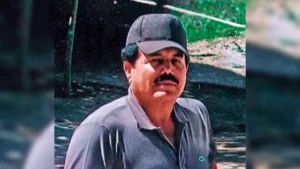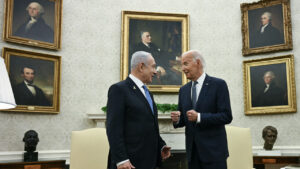
Fo with a loud round of applause, Navalny’s admirers marked the arrival of the hearse with his remains, at the beginning of a freezing afternoon in the southeastern neighborhood of the Russian capital where the Kremlin opponent lived a life of insubordination to President Putin and the Russian oligarchy.
Under the watchful eyes of hundreds of police, including members of the intervention corps, who guarded the perimeter, the compact crowd, made up mainly of young, elderly people, shouted in front of the church of the Icon of the Mother of God “Heroes don’t die”.
“Navalny wasn’t afraid, neither are we”, cried a young woman, being enthusiastically supported for a few minutes by the crowd, with many people holding bouquets of flowers.
Among the flowers, many carnations, which in Russia are a symbol of spilled blood.
The crowd also shouted “No to war!” in protest against the Russian attack on Ukraine, which began more than two years ago.
At that time, the Kremlin spokesman, Dmitri Peskov, threatened in a tone that unauthorized concentrations would constitute violations of the law. The feared order for the police to advance on the crowd did not arrive and the concentration took place peacefully.
Peskov’s words did not reach the Icon of the Mother of God church or were ignored by those who, without demobilizing, cried out for the “hero” who died on February 16th, in a Siberian prison, and who had already resisted an attempt to poisoning that he attributed to the Kremlin, but he still decided to return to his native Russia, where he found prison and a death that many considered certain.
A declared critic of President Vladimir Putin’s regime and charismatic defender of the fight against corruption, Navalny died at the age of 47 under circumstances that are still unclear.
Prison services said he suffered a sudden collapse after a walk and the death certificate mentions a natural cause.
His associates, widow Yulia Navalnaia and many Western leaders accused Russian President Vladimir Putin of being responsible for Navalny’s death.
The Russian presidency denied such accusations.
Some of those who managed to enter the church today registered the presence of the deceased’s mother, Ludmila Navalnaia, as well as ambassadors from European Union countries and the United States.
Also present was Boris Nadejdin, a well-known opposition figure who was refused a candidacy for the next presidential elections, scheduled for two weeks from now.
Those who could not be present were Navalny’s widow and children, residing abroad.
The ceremony was threatened, as the funeral services refused to take his body to the church, as some of the close associates of the political opponent of the Russian regime reported on social media.
“First, we were not allowed to hire a funeral home to say goodbye to Alexei. And now, when the funeral was supposed to take place in the church, the funeral workers inform that no hearse will take the body”, indicated his team shortly before the scheduled time for the funeral.
But the funeral ended up taking place, and in the way Navalny intended.
After the funeral mass, the crowd gathered around the church and followed the funeral procession to the Borissovskoye cemetery, where they witnessed the most emotional moment of the entire ceremony: the descent of the body to the earth to the sound of ‘My Way ‘ (‘In My Way’), by Frank Sinatra.
“Because what is a man, what does he have?/ If he is not himself, then he has nothing/ To say everything he really feels/ And not the words of those who kneel/ History shows, I took the blows/ But I did it my way”, sings Sinatra in the famous hymn to insubordination.
Read Also: EU offers condolences to Navalny’s family and friends on the day of his funeral

Download our free App.
Eighth consecutive year Consumer Choice for Online Press and elected product of the year 2024.
* Study by e Netsonda, Nov. and ten. 2023 product of the year – pt.com
Source: https://www.noticiasaominuto.com/mundo/2512661/inimigo-numero-um-de-putin-desceu-a-terra-ao-som-de-my-way



